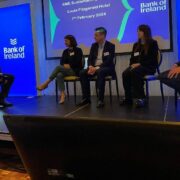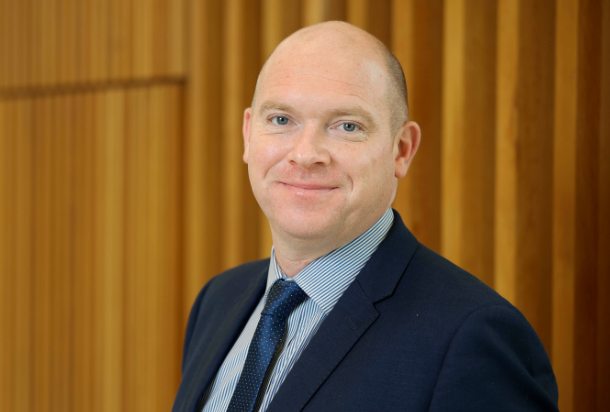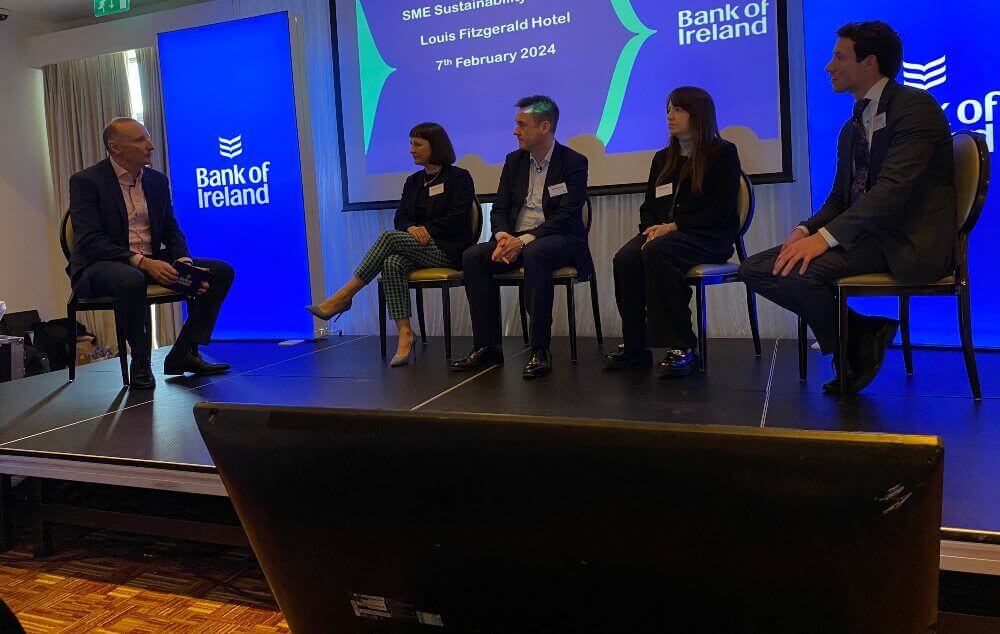Optimism among Irish CEOs improves on Irish economy, but over a quarter of Irish CEOs do not believe their businesses will be viable in a decade as tech and climate pressures accelerate.
The proportion of Irish CEOs who are optimistic about growth in the Irish economy has improved from 33% last year to 50% this year, according to the latest PwC 2024 Irish CEO Survey.
However, confidence is fragile: over a quarter (28%) of Irish CEOs do not believe that their business will be viable in a decade without reinvention – up from 21% in 2023.
“Confidence in their own organisation’s revenue growth is high, reflecting resilience in the face of external disruption”
Concerns around inflation, macroeconomic volatility and cyber risks remain very high
63% of Irish CEOs expect Generative AI to significantly change the way their company creates value in the next three years.
CEOs expect more pressure over the next three years than they experienced over the previous five from technology, climate and other megatrends.
Four in 10 Irish CEOs report that they have accepted lower returns for climate-friendly investments.
“Reflecting the underlying strength of our economy, the survey highlights that more Irish business leaders are confident in Ireland’s economic growth compared to this time last year,” said Enda McDonagh, managing partner at PwC Ireland.
“Confidence in their own organisation’s revenue growth is high, reflecting resilience in the face of external disruption. However, this year’s survey data suggests a high degree of CEO uncertainty ahead, but CEOs are taking action.
“In an uncertain world, securing the longevity of their businesses has never been more challenging,”
“From macroeconomic volatility and geopolitical threats to climate action and the rise of GenAI, the challenges facing CEOs continue to grow more complex. Framed in the context of this complexity and the increasing pace of change, more and more business leaders are acknowledging the need to reinvent their business for sustained success. Last year, 21% of Irish CEOs were not confident about the sustainability of their business models within ten years if they continued on their existing path. This year, that figure rose to 28% suggesting that the need for continuous reinvention of business models will be a new norm for CEOs.”
GenAI: Opportunity or threat?
76% of Irish CEOs expect GenAI to increase cybersecurity risks in the year ahead; 62% expect it to increase the spread of misinformation
The majority of Irish CEOs see generative AI (GenAI) as a catalyst for reinvention that will power efficiency, innovation and transformational change but not to the same extent as global peers. Nearly two-thirds (63%) believe that GenAI will significantly change the way their company creates and delivers value in the next three years, behind global peers (70%). 60% of Irish CEOs also said that GenAI will increase the competitive intensity in their industry (Global: 68%).
At the same time, Irish CEOs are optimistic about the short-term impact of GenAI, but Global CEOs in the main are more upbeat. Over the next 12 months, half (51%) of Irish CEOs expect GenAI to improve the quality of their products or services (Global: 58%) and four out of ten (40%) say GenAI will enhance their ability to build trust with stakeholders (Global: 48%).
Many also expect better outcomes for their businesses as a result of GenAI – 69% of Irish CEOs expect GenAI to have a positive impact on their employees’ time at work (Global: 64%). 38% expect GenAI to increase profitability in the year ahead (Global: 46%) and 32% expect it to boost revenue (Global: 41%).
But while CEOs are increasingly looking to the transformative benefits of GenAI, the great majority say it will require workforce upskilling in the next 3 years (Ireland: 60%; Global: 69%).
More Irish CEOs expressed concern about the risks associated with GenAI compared to global peers. Over three-quarters (76%) expect GenAI to increase cybersecurity risks in the year ahead (Global: 64%). Gen AI is also expected to increase the spread of misinformation (Ireland: 62%; Global: 52%) and legal liabilities and reputational risks (Ireland: 55%; Global: 46%).
Is climate transition a value driver?
Nearly three-quarters (74%) of Irish CEOs reported that their organisation will be exposed to climate risks to some extent in the year ahead (Global: 73%). Many are seeing the climate transition as an industry disruptor containing distinct opportunities as well as risks. 87% of Irish CEOs expect climate change to shift the way they create and deliver value over the next three years (Global: 80%).
The survey reveals that, in the last 12 months, 40% of Irish CEOs accepted lower rates of return for climate-friendly investments (Global: 41%) compared to other investments. Irish companies are also taking proactive steps, more so than global companies, to improve energy efficiency (Ireland: 93%; Global: 89%), selling products, services or technologies that support customers’ climate resilience efforts (Ireland: 83%; Global: 74%) and incorporating climate risk into financial planning (Ireland: 80%; Global: 66%).
Irish CEOs cite regulatory complexity (71%) as the greatest barrier to decarbonising their business model (Global: 76%). Other barriers include: lower economic returns for climate friendly investments (Ireland: 63%; Global: 72%) and a lack of climate-friendly technologies (Ireland: 62%; Global: 73%). Just 28% of Irish CEOs reported that a lack of board or management buy-in is a barrier to decarbonisation compared to 47% for global companies.
The reinvention of the CEO
Irish CEOs have had a key focus on taking steps to reinvent themselves over the last five years. For example, 93% have adopted new technologies that enhanced their capabilities (Global:95%).
88% have developed new products or services (Global: 93%) and 76% have formed new strategic partnerships that enhanced their capabilities (Global: 86%). The survey reveals that the key drivers of change – technological, customer preferences and climate – will intensify the shift to realising greater value over the next three years compared to the previous five years, thus putting more pressure on business leaders.
However, successful reinvention requires resource reallocation. Over half (53%) of Irish companies reported that they reallocate more than 10% of their company’s resources every year – 14% lower than the global figure of 67%. At the same time, Irish CEOs reported that their acquisition rate (to acquire other companies) is set to double to 41% in the next three years (Global: 60%).
“The survey confirms that businesses are reinventing their operating models, investing in technology and their people and managing the risks and opportunities presented by the climate transition and other disruptors. In particular, businesses are making complex trade-offs as they strive to boost the sustainability of their businesses, even with lower returns for climate investments increasingly accepted. With issues like net zero and ESG/sustainability reporting including the Corporate Sustainability Reporting Directive (CSRD) coming down the track, forward-looking companies are taking pro-active steps.
“GenAI is another game changer bringing opportunities and risks. The companies who embrace this new technology will reap their rewards. If businesses are to thrive over the short and long-term, build trust to deliver sustained and long-term value, they must accelerate the pace of reinvention.”






